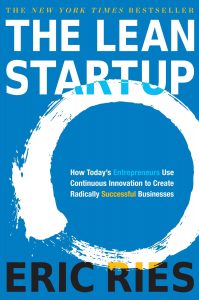
1. Early Management:
Even though startups are prone to uncertainty the most, it is crucial for them to focus on the management of duties. Management should closely focus on inspection and adaptation in line with a set vision.
2. Establish Vision:
The most critical role of leadership should be to first define a strong vision and then build an environment that encourages entrepreneurship/experimentation.
3. Learning:
The best way a lean startup can measure progress is by using validated learning. Treat every choice and every decision as a form of experiment.
4. Experimentation:
Without this, it is impossible to validate anything. The goal should be to maximize learning through validation and rapid build-measure cycles.
5. Leap of faith:
Prudently identify any leap of faith assumptions that are crucial to success. Test the key assumptions to determine the growth factors that will support the strategy.
6. Testing:
Focus on producing MVPs even if they are not functional. Anything that facilitates a faster build-measure-cycle for validation is crucial.
7. Measure and Analyze:
Build a system of metrics of measurement that is actionable, accessible that will help test assumptions.
8. Pivoting:
It is important to determine when to pivot. Any pivot should be considered a new assumption and must be rapidly tested and validated.
9. Adapt and Innovate:
Form a system that regularly inspects and that can adapt swiftly. A balance between speed and quality is key. To effectively innovate, create innovation teams within the framework which have sufficient independence and resources.
Five key principles for a lean startup:
1. Entrepreneurs Exist Everywhere-
The entrepreneurial spirit is not only reserved for startups. It can be found in small businesses, as well as large companies. Whether it is a new company or an established one.
2. Entrepreneurship is Management-
Being an entrepreneur is very different from being a manager. But entrepreneurship involves management. A startup is an organization that needs to be managed.
3. Build-Measure-Learn-
Create a product that people desire. Startups by their very essence create something unique. Learn the importance of getting that product into the market, observing how people respond, and discovering what works and what doesn’t.
4. Validated Learning-
Learn how to decide what feedback is concrete before applying it to product design or a change in strategy.
5. Innovation Accounting-
Entrepreneurs should be accountable for their outcomes throughout the startup process. Using checkpoints or milestones to measure results.
# Key Takeaways:
– The Lean Startup emphasizes the importance of creating a minimum viable product (MVP) and testing it with customers to gather feedback and make improvements.
– It encourages a continuous cycle of build-measure-learn, where entrepreneurs constantly iterate and pivot based on customer feedback.
– The book stresses the importance of focusing on the problem rather than the solution, and using a scientific approach to validate assumptions and hypotheses.
– It advocates for a lean and agile approach to business, where resources are used efficiently and waste is minimized.
– The Lean Startup also emphasizes the importance of a strong company culture and the need for constant innovation to stay ahead in a rapidly changing market.
# Practical Application:
The concepts and strategies outlined in The Lean Startup can be practically applied in real-world scenarios by:
– Conducting customer interviews and surveys to gather feedback and validate assumptions.
– Creating a MVP and testing it with a small group of customers before investing more resources.
– Using data and metrics to track progress and make data-driven decisions.
– Encouraging a culture of experimentation and learning from failures.
– Implementing a lean and agile approach to business, where resources are allocated based on customer needs and feedback.
# Valuable Insights for Leaders and Managers:
– Chapter 1: “Vision” – This chapter emphasizes the importance of having a clear vision and purpose for the company, and how it can guide decision-making and motivate employees.
– Chapter 5: “Hypotheses” – This chapter discusses the importance of testing assumptions and hypotheses, and how it can lead to a more successful and sustainable business.
– Chapter 7: “Validated Learning” – This chapter highlights the importance of using data and metrics to track progress and make informed decisions.
– Chapter 10: “Innovation Accounting” – This chapter introduces the concept of innovation accounting, which helps measure the progress and success of a startup.
– Chapter 12: “Growth” – This chapter discusses strategies for sustainable growth and how to avoid common pitfalls.
# Case Studies and Examples:
– Dropbox – The book uses Dropbox as a prime example of a successful lean startup, highlighting how they used a MVP and customer feedback to grow their business.
– Intuit – The book discusses how Intuit used a lean startup approach to develop their product, QuickBooks, and how it led to its success.
– Zappos – The book mentions how Zappos used a customer-centric approach and continuous experimentation to build a successful company culture.
– IMVU – The book uses IMVU as an example of a company that constantly pivoted and adapted based on customer feedback, leading to its success.
– General Electric – The book discusses how General Electric implemented lean startup principles to transform their company and stay ahead in the market.
Leave a Reply